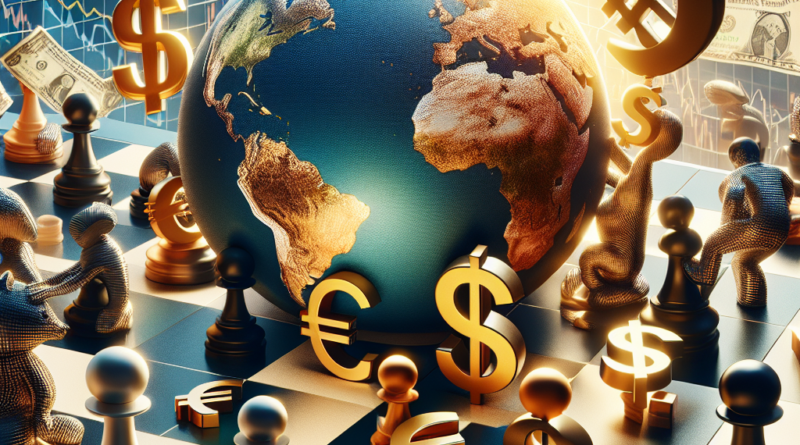The Global Currency Game: Who Loses Out with the Strengthening of the Dollar
The Global Currency Game: Impact of a Strong Dollar
Amidst the spotlight on the dollar lies the focus on the US Federal Reserve.
The high Fed rates, a response to rampant inflation in the US, mean that American assets offer better returns compared to much of the world.
The result? Investors need dollars to buy them, and money flows into the United States with a force felt by every country worldwide.
The Strong Dollar Effect
We are witnessing a sort of global currency game.
On one side, we have a dollar fueled by the Fed’s actions, while on the other, we find a series of international currencies paying the consequences of such a modus operandi.
By 2024, as highlighted by The New York Times, all major world currencies had depreciated against the dollar, giving rise to an unusually extensive and potentially dangerous phenomenon for the global economy.
Two-thirds of the 150 currencies monitored by Bloomberg have weakened against the greenback.
The dollar’s strength essentially stems from a shift in expectations of when (and by how much) the Fed might cut its benchmark rate (at its highest in at least two decades).
“It has never been truer that the Fed is the world’s central bank,” stated Jesse Rogers, economist at Moody’s Analytics.
Consequences of a Strong Dollar Worldwide
A stronger dollar intensifies inflation abroad for a very specific reason.
Countries are required to exchange a larger amount of their currency to achieve the same quantity of goods denominated in dollars (including imports from the US and globally traded commodities, such as oil, often priced in dollars).
Furthermore, governments that have taken out loans in dollars face higher interest payments.
There are other implications to consider.
For instance, a strong dollar can benefit some non-US companies as Americans can afford to purchase more foreign goods and services.
At the same time, US companies selling abroad do not enjoy advantages since their goods appear more expensive.
Goldman Sachs explains that if US rates were to remain high throughout the year, then the effects of this trend could be “sinister.” In this case, US policymakers would be forced to choose between supporting the domestic economy by cutting rates or supporting their currency by keeping rates high.
The Complex Game
In any case, the Asian region is undoubtedly bearing the brunt of a strong dollar.
Finance ministers from Japan, South Korea, and the US met in Washington and committed to “close consultation on currency market developments.” Tokyo and Seoul expressed serious concerns over the recent sharp depreciation of the Japanese yen and the Korean won.
Specifically, the Korean won is at its weakest since 2022, while the yen has plummeted against the dollar, briefly exceeding the 160 yen per dollar mark for the first time since 1990.
China, whose economy has been hit by a real estate crisis and a slowdown in domestic spending, is striving to keep its currency within a narrow range.
However, Beijing recently relaxed its stance and allowed the yuan to weaken, demonstrating the pressure from the dollar on financial markets and the political decisions of other countries.
“A weaker yuan is not a sign of strength.
It will lead to questioning whether the Chinese economy is as robust as previously thought,” said Brad Setser, senior fellow at the Council on Foreign Relations.
In Europe, ECB policymakers have indicated that they may cut rates at the upcoming meeting scheduled for June.
However, there are concerns that by reducing interest rates before the Fed, the ECB may widen the gap between eurozone interest rates and those of the US, further weakening the euro.
As the concept of de-dollarization slowly takes hold, fueled by some favorable geopolitical situations, one must not overlook a more evident fact: the strength of the dollar is reverberating across the globe in various ways.
The Fed’s levers continue to determine the fate of the planet, able to dictate the success or failure of governments on every continent and, in general, have the power to turn economic matters into geopolitical issues.
That’s why it remains crucial to monitor Washington’s currency moves and the health of the greenback.
Read also: The Shadow of Speculation and the Weak Yen: Economic Challenges in Japan




